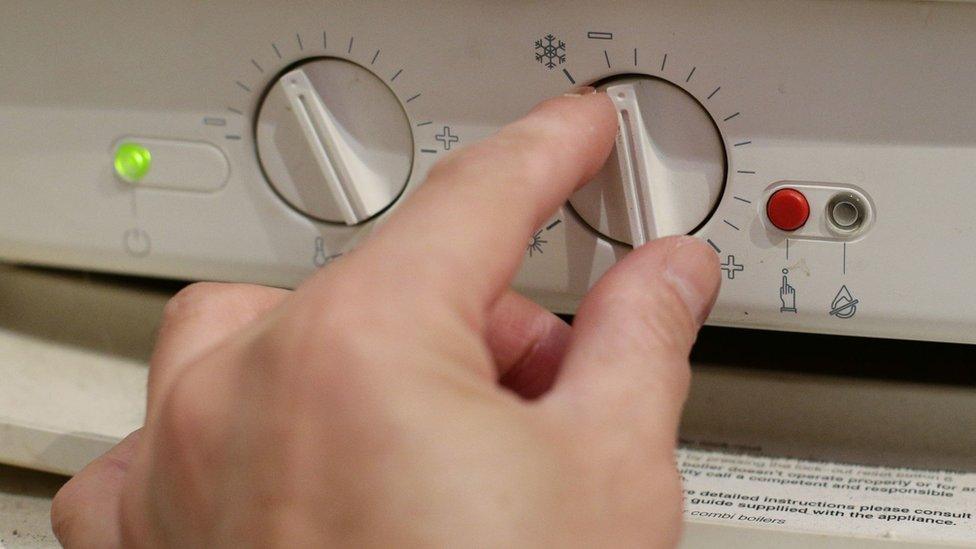Green homes: How will we heat our properties in future?
- Published
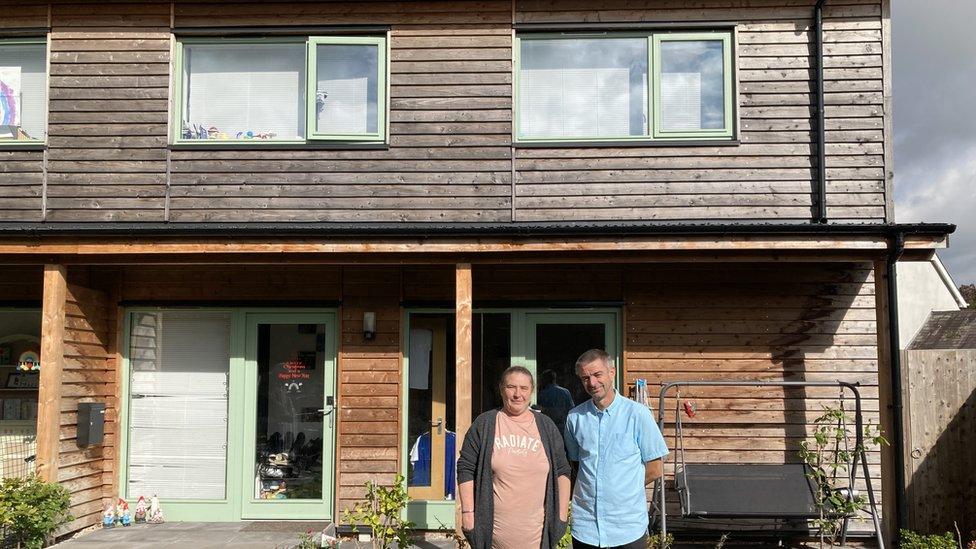
Michelle and Steven Potter said they were benefiting from lower bills
Using new methods to heat just six homes can have the same impact as taking 60,000 cars off the road, a housing association has said.
Coastal Housing, which manages 5,000 homes in south Wales, said this demonstrated the current scale of carbon emissions from heating homes.
But chief executive Debbie Green said it also showed change was possible.
The heating of buildings is currently responsible for up to 10% of all Welsh emissions.
But Ms Green said that over a period of 60 years there would be a reduction of 180,000kg (28,345 stone) of carbon emissions if six of their new homes were compared with traditional homes.
Steven Potter, who lives in one of the homes with his wife Michelle and their son, said: "It's totally different from where we lived before. You haven't got gas central heating here, you've got solar panels."
He said it had helped the family's finances "100%" as their monthly bills were now about £43 a month - less than half of what energy regulator Ofgem calculates as the average dual fuel bill (£95).
Mrs Potter said: "We couldn't be happier."
She said their son suffered with asthma, which had been "really bad" in their previous home because it was damp.
"Since we've lived here I'm hardly giving him any asthma pumps which is really beneficial for his health. It's really good," she said.
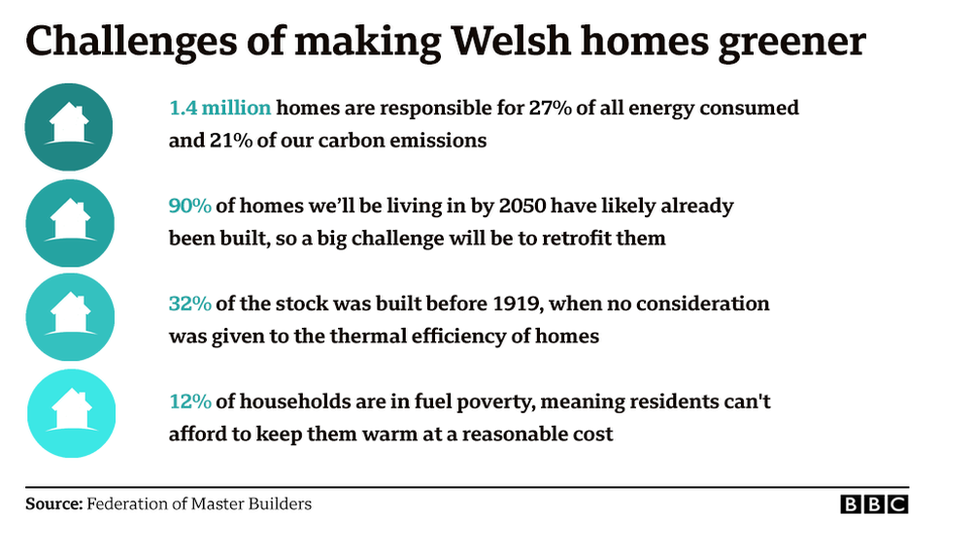
The Welsh government has set a target for 20,000 low-carbon houses to be built for social rent before the next Senedd elections. It has said it wants the public sector to be carbon neutral by 2030, external.
Policy makers are encouraging the installation of better insulation so less energy is lost into the atmosphere.
They are also looking at new ways to build homes so the materials used and the way homes are built has less of an impact on the environment.
Most homes in Wales are older, traditionally built and dependent on fossil fuels like oil and gas for heating.
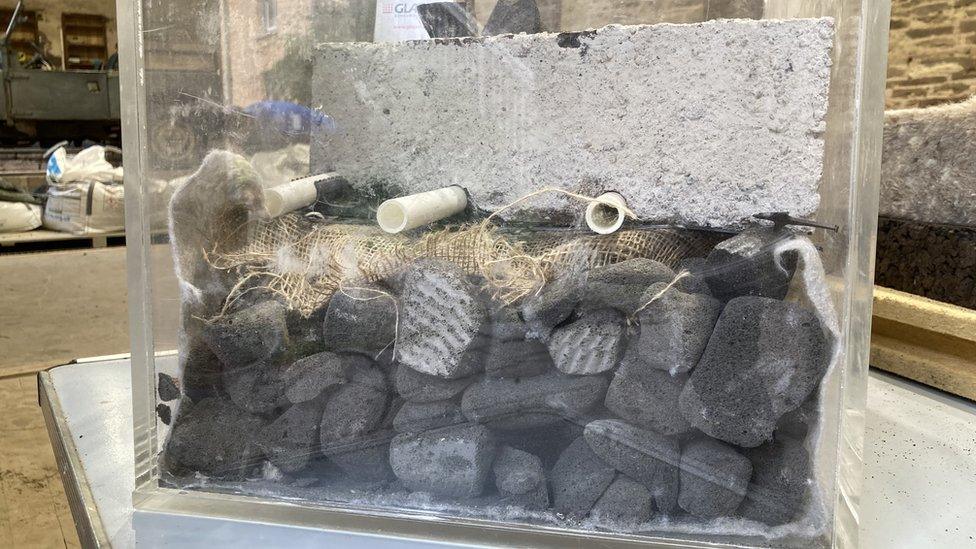
Under floor insulation made from recycled glass bottles
Ifan Glyn, Wales director at the Federation Of Master Builders, said: "The task of improving the energy efficiency of 1.4 million Welsh homes could provide local builders with a once-in-a-generation opportunity as they are ideally placed to carry out the work.
"To be in a position to make the most of this opportunity, builders will need to see a clear and enticing pipeline of work.
"They will also need information and guidance on the skills required and be able to acquire these skills cost-effectively and within their own communities."


He added that retrofit works needed to become mainstream among consumers by providing homeowners with better guidance and financial incentives.
Coastal Housing Association's homes in Ammanford, Carmarthenshire, were built using Welsh larch wood, used recycled paper as insulation, and were fitted with solar panels to produce electricity to run the house.
"These six homes save, over 60 years, 180,000 kilograms of carbon - which is the equivalent of planting two million trees or taking 60,000 cars off the road," said Ms Green.
"It's not just about housing people. There will be new jobs required for the people fitting these products… This is going to create jobs that lots of people will be able to do or their children will be able to train in and do when they leave school."
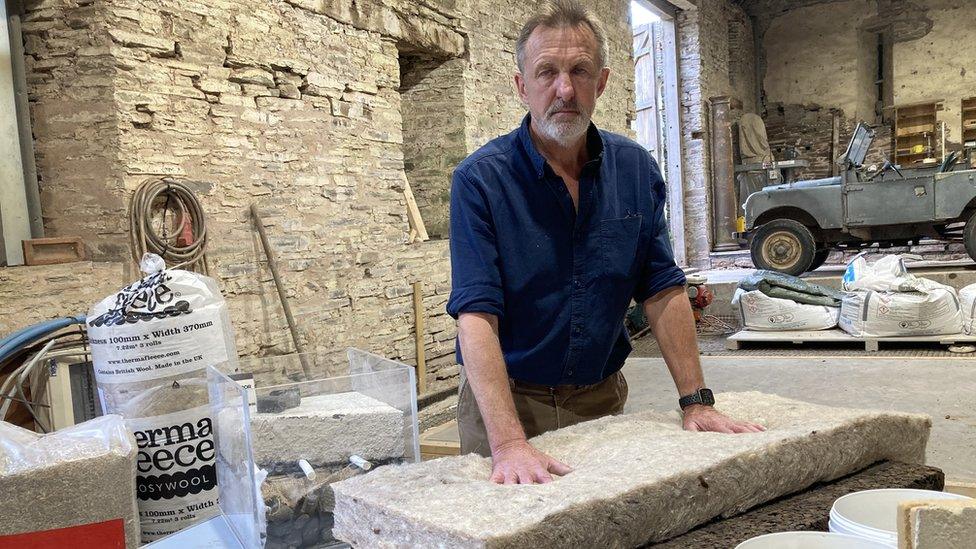
Nigel Jarvis's company has been using sheep wool in insulation
Ty-Mawr Lime, near Brecon in Powys, has been developing a range of natural products to insulate or improve older houses.
Established more than 25 years ago by Joyce and Nigel Gervis, the company now employs 26 people.
They are the only company in the UK using Welsh wool to make insulation. The wool is washed and made into insulation that reduces noise, keeps in heat and allows a building to "breathe".
"I'm a sheep farmer's daughter so wanted to do something with wool insulation and started to discover then, 30 years ago, that in New Zealand they were actually making insulation from sheep's wool and we thought, 'that's fantastic'," said Joyce Gervis.
By using Welsh wool they believed they could increase farmers' incomes and be more environmentally friendly.
"A lot of what we are looking at now are earth mortars, stuff that's coming out of the ground, what can we use that's actually there," added Nigel Gervis.

BLACK AND WELSH: Celebrate our multicultural nation; humour, pride and lived experience
HAYLEY PEARCE PODCAST : Tackling the issues that make your group chats go off

- Published25 August 2021
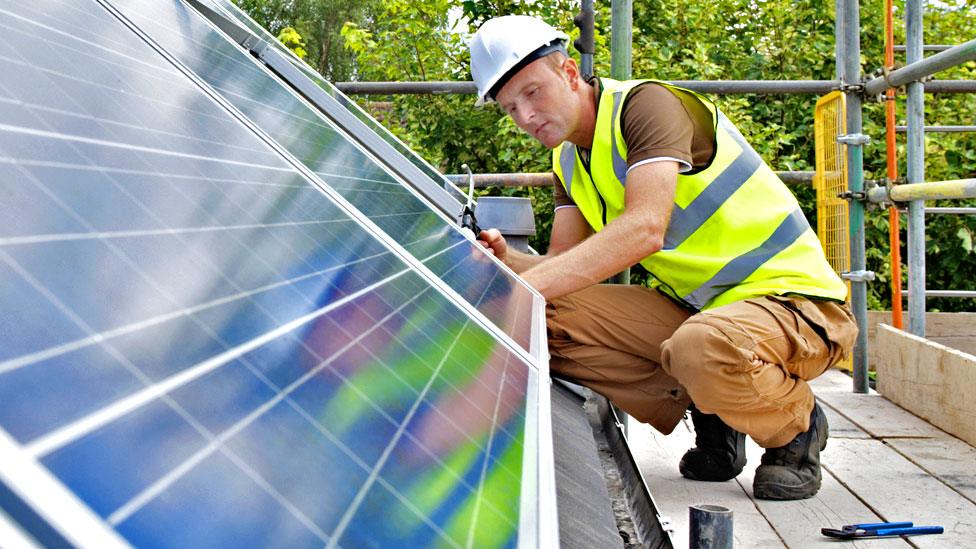
- Published4 August 2021
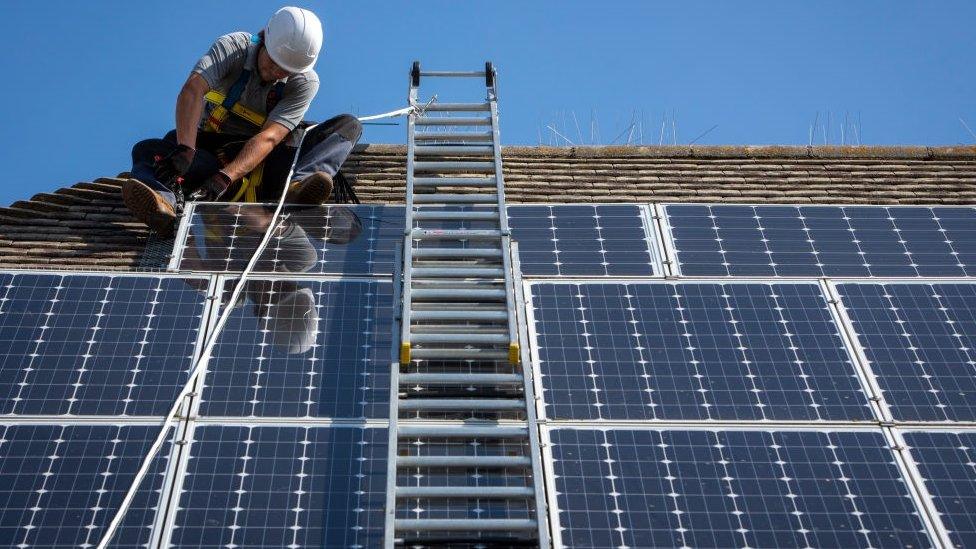
- Published28 May 2021
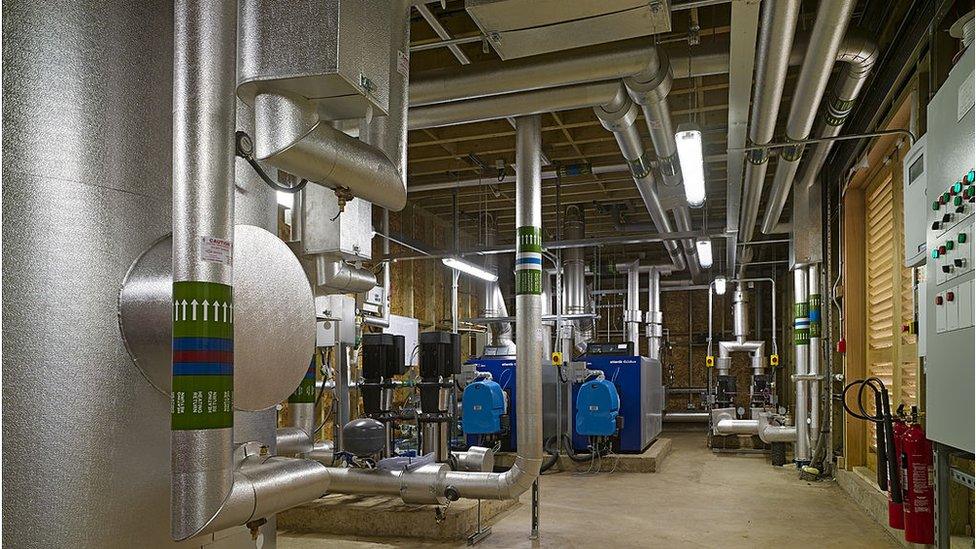
- Published6 February 2021
